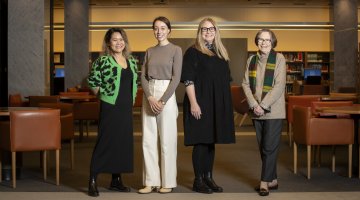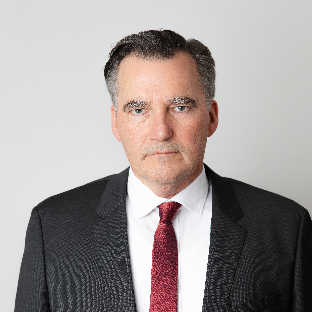Monday 18 March 2024, Melbourne Australia: ViiV Healthcare Australia is proud to announce four Australian community-based HIV organisations are receiving funding from the 9th cycle of the Positive Action Community Grants (PACG) program.
The $200,000 fund has been distributed among projects that look to address quality of life for people living with HIV, improve HIV-related knowledge in priority populations, enhance patient-health care provider relationships and strengthen health system responses to achieve the best long-term outcomes for people living with HIV.
In its 9th cycle, the Australian program awarded grants to:
ACON for the development of a practice guide and a suite of digital resources promoting inclusive HIV care for culturally and linguistically diverse (CALD) gay and bisexual men who have sex with men (GBMSM).
Living Positive Victoria for the development of the ‘Sharing your Status’ guide. The comprehensive guide will help people living with HIV navigate disclosing their HIV status to potential sexual partners, family members and others.
National Association of People with HIV Australia for the ‘Amplifying AusQoL’ project. The project aims to empower decision makers to use the Australian Community Accord on Quality of Life for people living with HIV (AusQoL) which calls for coordinated action to achieve a bold target of 95% of people living with HIV reporting a good quality of life.
Queensland Positive People for the ‘Reaching the 25%’ project. This project aims to introduce peer-led outreach models at Brisbane language schools, focusing on Spanish and Portuguese-speaking Latin Americans, to facilitate early diagnosis, care linkage, and treatment initiation, further strengthening sexual health infrastructure in Brisbane.
Ann Maccarrone, Community Engagement and Partnerships Manager at ViiV Healthcare Australia, says that community-led advancements in HIV care are pivotal to closing the care gap and improving the lives of people living with HIV.
“We are proud to support the four recipients of the 2023 PACG program, whose projects all share our mission to drive positive and lasting change for people living with HIV. The initiatives from ACON, Living Positive Victoria, the National Association of People with HIV Australia and Queensland Positive People will help extend services across priority populations and help ensure that people living with HIV are supported at every stage of their journey,” said Maccarrone.
In recent years, healthcare systems have made progress in establishing inclusive care and support for people living with HIV. Despite these improvements, many people living with HIV continue to report lower health-related outcomes and poorer quality of life when compared to people without HIV.1 ViiV Healthcare recognises that addressing this disparity requires multi-faceted interventions both at the community level and across the healthcare system and this round of Positive Action grants hopes to help with that.
Jack Freestone, Manager GBMSM Sexual Health Programs at ACON says it’s important that all community groups have access to inclusive and affirming support services tailored to their respective and unique needs.
“The importance of having targeted resources for priority populations like CALD GBMSM cannot be understated, as these communities often experience unique challenges, like potential language barriers and cultural stigmas. Through the development of a practice guide, a suite of digital resources and a webinar, ACON hopes to help foster a stronger and more inclusive health care environment that promotes better engagement, understanding, and management of HIV within these communities,” said Jack.
Emil Canita from Living Positive Victoria says the Positive Action funding will help the organisation provide support services to people living with HIV who are navigating the challenges around disclosure, particularly concerning discrimination and stigma.
“HIV disclosure is complex and can be scary due to compounding personal, social, and cultural factors. Individuals may experience fears of rejection, which can be exacerbated by the stigma and misconceptions around HIV. Currently in Victoria, there are a limited number of programs helping people living with HIV navigate the complexities and challenges around disclosure. The development of ‘Sharing Your Status’ will help close this gap by providing people living with HIV access to a digital resource developed by peers that can help individuals feel less isolated and more prepared to disclose their status,” said Emil.
Brent Clifton, Deputy Director of the National Association of People with HIV Australia (NAPWHA) believes that ensuring equal health outcomes for people living with HIV can only be attained with an inclusive approach to healthcare and health systems.
“In order to truly improve quality of life for all people living with HIV, we need to create opportunities for meaningful collaboration between community, healthcare professionals and policy makers. Over the course of a year, NAPWHA will unite these sectors through a system change project. Made up of a series of workshops, podcasts and interactive resources, the project aims to amplify AusQoL and encourage further integrating person-centred care, that includes a focus on improving quality of life, into our existing health systems,” he said.
Luke Coffey of Queensland Positive People, says that providing migrant communities access to safe and culturally informed spaces can help address the healthcare disparities caused by language barriers and cultural differences.
“In Australia, Latin American migrants, particularly new arrivals, face a disproportionately high burden of HIV, with notification rates 3.5 times higher than those born in Australia and approximately 25% living with undiagnosed HIV.2 Our data also indicates that recently settled migrants often have the lowest levels of English language proficiency, and as a result, experience greater levels of healthcare disparity. Our Positive Action grant will be used to support a peer-led outreach model, focused on timely diagnosis, testing and care, for recently settled Spanish and Portuguese-speaking Latin American migrants.
“The program will be developed in close consultation with Latin American peers with first language proficiency in Spanish and Portuguese to ensure relevance and cultural safety. By offering empathy and leaning on shared experiences, the program will support the community in overcoming psychosocial barriers to sexual health testing, reduce perceptions of judgement, stigma, and fear, and address the potential discomfort individuals experience when talking with healthcare professionals,” said Coffey.
Established globally in 1992 and introduced in Australia in 2015, the Positive Action Community Grant program looks to fund community-based projects that reach those most affected by, or at risk of HIV, particularly in marginalised, hard to reach or vulnerable communities.








